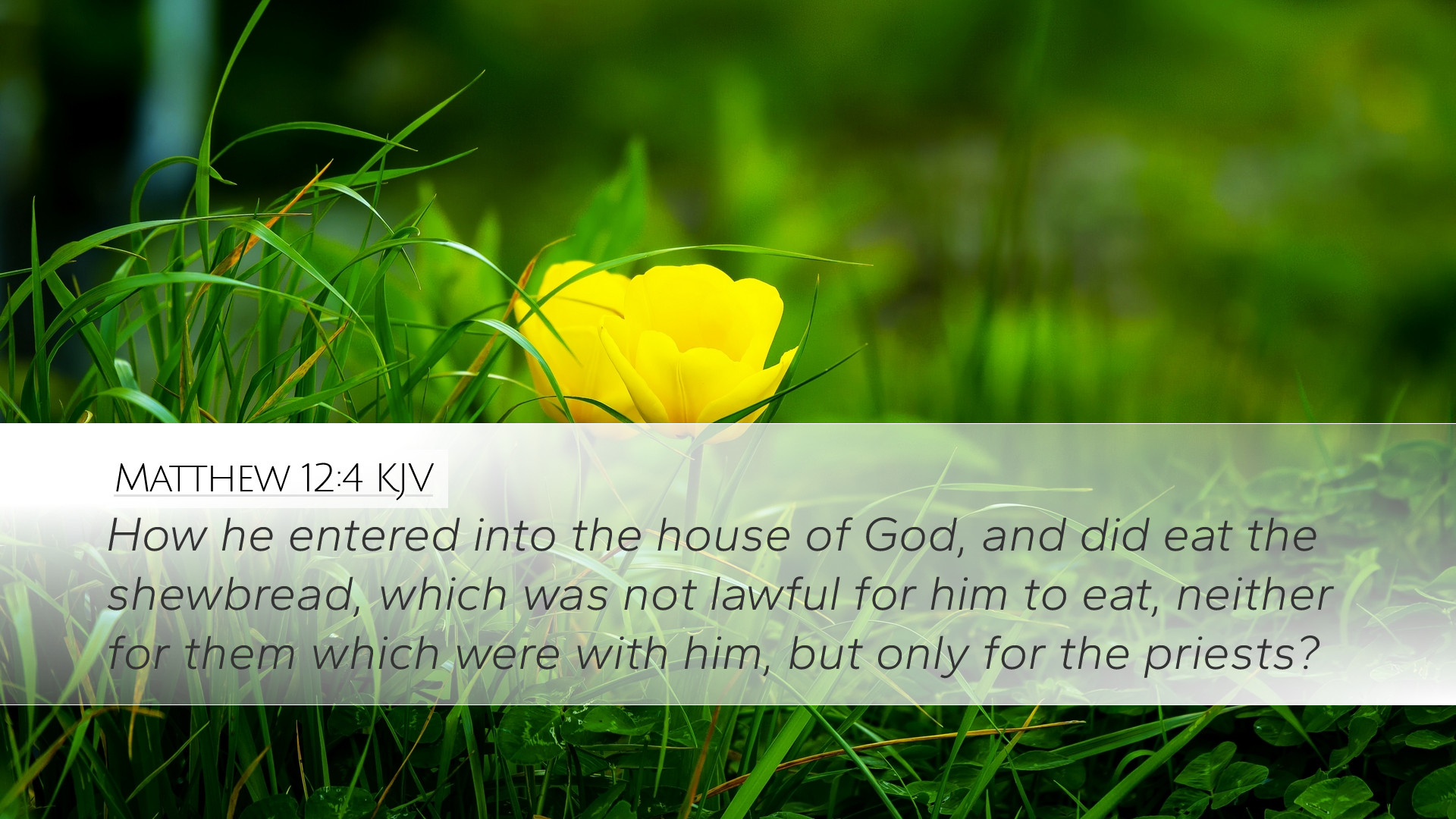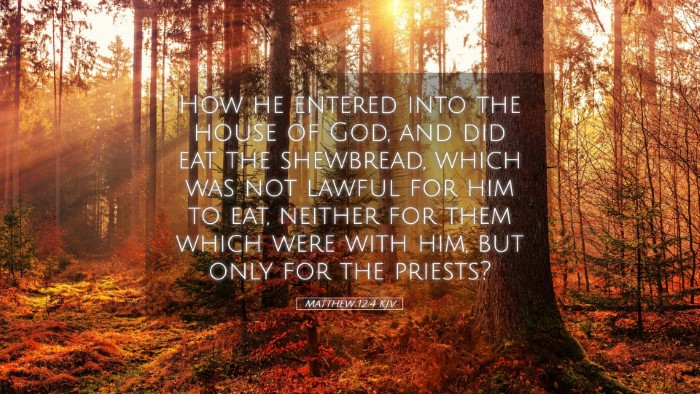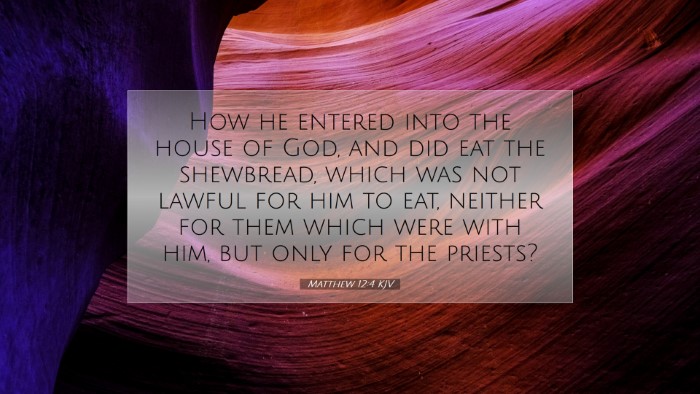Commentary on Matthew 12:4
Bible Verse: Matthew 12:4 - "How he entered into the house of God, and did eat the shewbread, which was not lawful for him to eat, neither for them which were with him, but only for the priests."
Contextual Analysis
The context of Matthew 12:4 revolves around a discussion Jesus has with the Pharisees regarding the observance of the Sabbath. In this narrative, the Pharisees challenge the disciples of Jesus for plucking grains on the Sabbath, leading Jesus to cite an example from the life of David. This example serves to illustrate a deeper principle regarding the interpretation of the Law and mercy.
Interpretive Insights
- David's Actions (Matthew Henry): Henry elaborates on how David, fleeing from Saul, sought sustenance in the house of God. His need-driven actions reveal the profound truth that human necessity often outweighs ritualistic adherence to the law.
- The Shewbread (Albert Barnes): Barnes notes that the shewbread, which was meant only for the priests, signifies the sacred and privileged access to God's provision. David's consumption of this bread indicates that the essence of the law is not mere ritual but the heart behind the obedience.
- Legalism vs. Humanity (Adam Clarke): Clarke discusses the implications of legalism as demonstrated by the Pharisees, showcasing how their rigid adherence to the law overlooked the compassionate and humanistic elements that the law was meant to embody.
Dive into the Implications
The example of David serves not only as a historical account but also emphasizes the longstanding theological principle that mercy triumphs over judgment (James 2:13). This narrative provides a framework for understanding God’s intention behind the Law, which is rooted in a relationship rather than mere rule-following.
The Biblical Order: When David sought the shewbread, he demonstrates an understanding of necessity - the basic human needs must come above ceremonial observances. This calls into question the motivations of those who hold strict legalistic views.
Theological Reflections
This verse has significant implications for how church leaders and believers alike understand their interaction with the Law. Jesus, in referencing King David, highlights that the law is secondary to the essential needs of people and their relationship with God.
Further, it encourages a perspective that prioritizes grace and mercy as fundamental attributes of God's nature. Thus, the reading of the law cannot lead to condemnation, but to a deeper understanding of God's heart for His people.
Practical Application
For pastors and spiritual leaders, this text offers crucial insights into how they should preach and teach the Word. They are reminded to lead with compassion first, ensuring that their congregations understand the heart of God's law rather than simply obeying its letter.
- Emphasizing Mercy: Pastors should remind their congregations that their walk of faith must be grounded in love and mercy. Practical acts of kindness can often fulfill the intent of the law better than mere observance.
- Encouraging Relationship Over Ritual: As church bodies gather, they should focus on fostering genuine relationships with God and one another, which can lead to authentic faith expressions that honor God.
- Understanding Grace: Recognizing our dependence on grace influences how believers interact with the world, illustrating that their need for God’s provision is not just a physical necessity but a spiritual one as well.
Conclusion
Matthew 12:4 urges a reflective and compassionate understanding of God's law, rooted in the example of David and the merciful approach of Jesus. For ministers, theologians, and scholars, dissecting the implications of this verse invites deeper conversations about the balance between law, necessity, and the overarching principle of mercy that defines the Kingdom of God.


